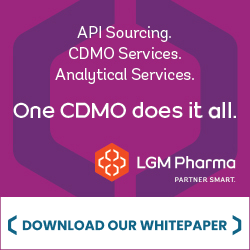
This week, Phispers covers Novartis, Sanofi & Gilead’s top level management shakeup, why a rating agency is not upbeat about India’s pharma sector, growing concerns about antibiotic resistance, a former pharma CEO to undergo trial for kickbacks and a lot more. Read on.
Monsanto rejects Bayer’s US $ 62 billion bid
The world’s largest seed company – Monsanto – turned down Bayer AG’s US $ 62 billion acquisition bid, terming it as “incomplete and financially inadequate”. However, Monsanto said it is open to engage in further negotiations.
The news has put pressure on Bayer to raise its bid, even though its shareholders have criticized its US $ 122 per share cash offer as very high. Bayer made the bid to grab the top spot in a fast-consolidating farm supplies industry.
Had it worked out, the US $ 62 billion unsolicited proposal would have been the largest all-cash takeover on record, just ahead of InBev’s US $ 60.4 billion offer for Anheuser-Busch in June 2008. Bayer’s bid for Monsanto comes just three weeks after Werner Baumann took over as Bayer CEO. And it overshadows the all-stock merger of DuPont and Dow Chemical Company last year.
GMP non-compliances uncovered in Germany, India & China
In the past week, five different facilities in Germany, India and China were cited by U.S. and European regulators for not complying with good manufacturing practices (GMP).
BBT Biotech, a manufacturer of active pharmaceutical ingredients (APIs) in Germany received a warning letter from the U.S. FDA for failing to show stability data which supported the expiration dates for product shipped to the United States.
Investigators also uncovered that the company made critical raw material changes ‘without adequate evaluation’, failed to investigate out-of-specification results effectively and that BBT Biotech’s laboratory systems exposed their “electronic data to manipulation and/or deletion without traceability”.
Tai Heng Industry Co. Ltd, in China also received an FDA warning letter this week as investigators observed “systemic data manipulation” across their facility.
Investigator found that batch samples were routinely retested following failing or atypical results until acceptable results were obtained. Failing results were not investigated or included in official laboratory control records.
Tai Heng has 16 Drug Master Files listed on the PharmaCompass database and their filings for Fingolimod Hydrochloride, Imatinib Mesylate and Rasagiline Mesylate have all had their review completed by the FDA.
While the U.S. investigators were busy outside India, European regulators from Italy and Croatia issued certificates of non-compliance to Indian based Dhanuka Laboratories, Krebs Biochemicals and J.P. Laboratories.
The investigators questioned the “integrity and security of data in the quality system” at J.P. Laboratories and found that the quality system at Dhanuka Laboratories was weak and not capable to consistently deliver product with the appropriate quality attributes.
The Italian regulator – Italian Medicines Agency (IMA) – identified 24 deviations from good manufacturing practices (GMP) at Krebs Biochemicals and Industries which pose a ‘critical risk’ to public health.
“The combination of the findings demonstrated a critical risk to public health, as the weaknesses of the company’s quality management system and the approach in several GMP areas such as facilities, material management, quality of the water used in the production and QC tests, were not robust enough to sustain a GMP compliant level,” the IMA said.
The investigators recommended the suspension of Certificates of Suitability (CEPs) from all three sites.
Novartis, Gilead & Sanofi’s rejig their top level management
Sanofi, Gilead and Novartis all saw senior level executive shakeups this week.
Novartis AG announced it is creating separate units for cancer and other drugs, underscoring the company’s focus on oncology after it purchased assets from GlaxoSmithKline in 2015.
As a result, the Swiss drug maker’s head of pharmaceuticals, David Epstein, will leave the company. The drugs division will be run by AstraZeneca Plc’s Paul Hudson, and the oncology unit will be led by Bruno Strigini.
Sanofi, on the other hand, announced another executive shakeup as several of its key drug franchises continued to encounter headwinds. The company is making several changes to its executive committee. It is creating a new consumer healthcare unit. And Pascale Witz, who currently heads Sanofi’s key diabetes and cardiovascular unit, is stepping down from June 1.
Gilead, which disappointed investors with its recent quarterly earnings, brought back Kevin Young from retirement as Chief Operating Officer (COO). Prior to retiring from Gilead, Young had been responsible for building up Gilead’s multibillion-dollar Hepatitis C franchise.
As the company continues to earn billions from its Hepatitis C franchise, Gilead has also been on a hunt for acquisitions. Their recent appointment of Dr. Martin Silverstein as the Executive Vice-President of Strategy could indicate increased deal making at the Foster City, California based company.
Rating agency not upbeat about India’s pharma sector
India’s exports of formulations experienced an annual growth of around 19 percent over the last decade. However, integrated research house CRISIL says India’s exports in formulations are likely to grow at only around 10 to 12 percent annually over the next five years.
For long, exports of generics have been the growth engine of India’s pharmaceutical industry. But that scenario is changing – the value of drugs going off patent is falling as the pricing pressures are on the rise.
For instance, annual sales growth of generic drugs in the US (which is the world’s largest generics market) is likely to slow down to 8 to 9 percent over the next five years and decelerate even more after that. Therefore, for growth to sustain beyond 2020, domestic companies will have to step up investments in new molecules and draw up a roadmap to deal with lower growth in generics.
FDA issues guidance on how agency needs to handle ICH Q8, Q9 and Q10 guidelines
The US Food and Drug Administration (FDA) put to force a new policy this week. It clarifies how agency staff in the Office of Pharmaceutical Quality (OPQ) should apply three international quality guidelines.
It outlines the responsibilities and procedures FDA expects its staff to adhere to when applying three International Conference for Harmonization (ICH) guidelines – ‘ICH Q8(R2): Pharmaceutical Development’, ‘ICH Q9: Quality Risk Management’ and ‘ICH Q10: Pharmaceutical Quality System’.
The FDA has been witnessing an increase in the new and supplemental applications for drugs and biologics featuring Quality by Design (QbD) approaches, which are outlined in ICH Q8(R2). The new policy seeks to address this.
Clinical fiasco: French authorities blame CRO and drug maker for various lapses
After a clinical trial in France left one person dead and five others hospitalized in January this year, French authorities have blamed the clinical research organization (CRO) – Biotrial – and the drug maker (Bial of Portugal) for various lapses.
Authorities have also moved to tighten procedures for testing medicines. The CRO, however, castigated authorities for their findings and blamed the medicine for causing serious patient reactions. In a 271-page report, IGAS – France’s social affairs inspectorate – said the CRO that oversaw the early-stage study, failed to properly manage the testing.
The agency said Biotrial continued to administer the drug even after one patient was sent to the hospital, and it failed to confirm patient consent before running the trial.
10 million could die of drug-resistant infections by 2050
Every year, 700,000 people die of drug-resistant infections. The Economist covered the menace of antibiotic resistance comprehensively this week. According to the magazine, the number of deaths could reach 10 million by 2050.
“Resistance to antimicrobial medicines, such as antibiotics and anti-malarials, is caused by the survival of the fittest. Unfortunately, fit microbes mean unfit human beings,” says the magazine.
According to the magazine, drug-resistance is not only one of the clearest examples of evolution in action, it is also the one with the biggest immediate human cost.
In India, 60,000 newborns die of drug-resistant infections each year. Both in rich and poor countries, wherever there is an endemic infection, there is also resistance to its treatment. For instance, drug-resistant versions of organisms such as Staphylococcus aureus are increasing the risk of post-operative infection, the report said.
Former Warner-Chilcott CEO to undergo trial for kickbacks
W. Carl Reichel, erstwhile president of the pharmaceutical division of Warner-Chilcott, had been accused of orchestrating a campaign to give money, free meals, and phony speaking fees to doctors in the US in exchange for prescribing medicines sold by his company during 2009 to 2012.
The case marks one of the relatively few instances in which federal prosecutors have sought to hold a high-ranking executive from a pharma company accountable for such activities.
Next week, Reichel goes on trial, and the case is likely to be closely watched by the pharmaceutical industry. “To the extent the executive is convicted, it will impact the industry,” said Anne Walsh, a former associate chief counsel at the FDA who is now a director at Hyman, Phelps & McNamara, a law firm that specializes in regulatory matters.
The PharmaCompass Newsletter – Sign Up, Stay Ahead
Feedback, help us to improve. Click here
Image Credit : Eye by photographerpandora is licensed under CC BY 2.0
“ The article is based on the information available in public and which the author believes to be true. The author is not disseminating any information, which the author believes or knows, is confidential or in conflict with the privacy of any person. The views expressed or information supplied through this article is mere opinion and observation of the author. The author does not intend to defame, insult or, cause loss or damage to anyone, in any manner, through this article.”







